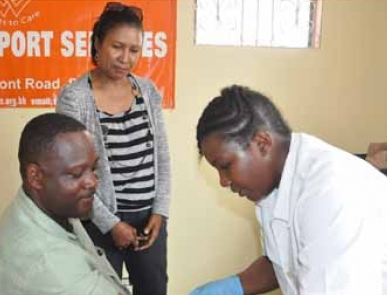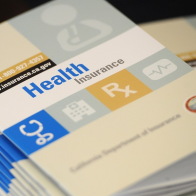 When it comes to prostate cancer African American men are twice as likely as White men to die of the disease and now, with a conflict in recommendations for prostate screenings, African American men could potentially be even more at risk. The U.S. Preventive Services Task Force have expressed concerns that routine prostate cancer screenings may do more harm than good, however, The National Medical Association, an association representing more than 50,000 African-American physicians, says black men should continue getting screened using the standard PSA blood test.
When it comes to prostate cancer African American men are twice as likely as White men to die of the disease and now, with a conflict in recommendations for prostate screenings, African American men could potentially be even more at risk. The U.S. Preventive Services Task Force have expressed concerns that routine prostate cancer screenings may do more harm than good, however, The National Medical Association, an association representing more than 50,000 African-American physicians, says black men should continue getting screened using the standard PSA blood test.
So where exactly does the conflict come in? Well according to the National Cancer Institute, prostate-specific antigen (PSA) is a protein produced by cells of the prostate gland. The PSA test measures the level of PSA in the blood, and though it is normal for men to have a low level of PSA in their blood, prostate cancer or benign conditions can increase a man’s PSA level. Opponents of PSA testing, like the U.S. Preventative Services task force, prefer men to take a wait and see approach to prostate cancer screening because they feel the test doesn’t save lives, causes unnecessary pain and can cause impotence and incontinence in many.
However, The National Medical Association believes that the test is beneficial particularly to African American men who are most affected by the disease. According to the NMA:
“As a national organization, comprised of the nation’s leading experts in minority health, we support the American Urological Association’s best practice statement regarding the PSA blood test to detect prostate cancer at its earliest stages.”
So which side should African American men choose? The right choice is definitely the one you feel is best for you. The National Medical Association recommends that men continue to follow the American Urological Associations best practice statement on prostate cancer early detection below.
- Initial PSA testing at age 40.
- Both digital rectal examination and PSA as part of screening.
- An informed decision making process.
- A multi-factorial assessment of risk based on age, ethnicity, family history, PSA kinetics and density.
As always it is better to be safe than sorry in regards to your personal health. Check with your regular physician to make an informed choice.







Get screened.
African Americans are traditionally disproportionately affected by diseases in the US than whites. Although this occurs for a multitude of reasons that can not and will not be rectified over night, we must take steps to mitigate this disparity.
I am a fan of this initiative, http://blackbarbershop.org. African American men, usually overlooked by society, are targeted by this program to inform them on how to take better care of themselves and diseases that they may be at high risk for and are given referrals for treatment.
Get screened. If not at 40, then 45. Or at least pay attention to the symptoms. But honestly, if treatment is highly successful, why wait?